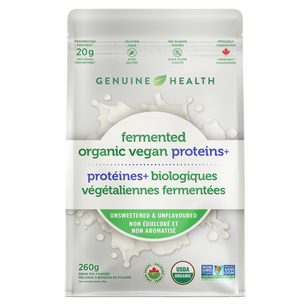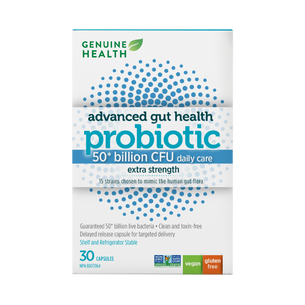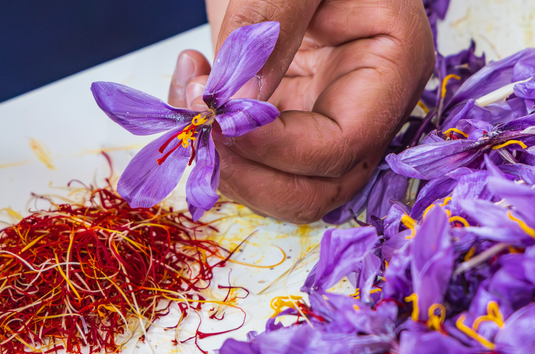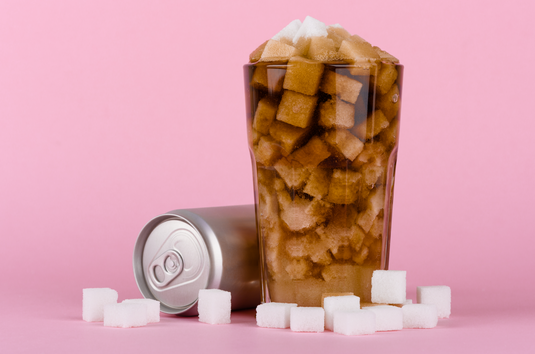Gut Feelings: The Gut – Brain Connection
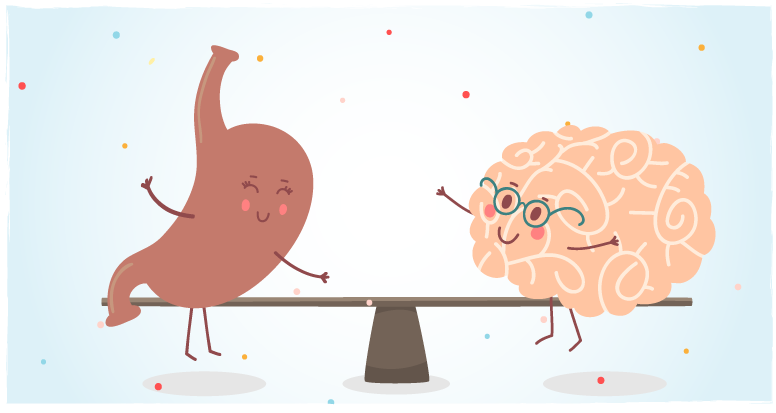
In Canada, we like to focus on our physical health…and rightly so. Without our physical health, what do we have? I’m sure all of you with a chronic health issue will agree — you can’t put a price on your physical health.
But I would like to argue we that need to include our mental health into the mix. Mental health issues are still getting a bad wrap. It’s a topic that takes some vulnerability to talk about and can seem of lesser importance than a physical health problem.
I think it’s important to note that it’s only in our version of medicine (“western medicine”) where our heads have been cut off. Traditional forms of medicine like Ayurveda (from India) and Traditional Chinese Medicine have always brought the mind/body connection into their treatments.
20% of Canadians will deal with a diagnosed mental illness in their lives. And most of us will deal with some form of mental distress this year; be that depression, anxiety, insomnia, or stress.
Inside our digestive system is a vast web of neurons, or brain cells. This network is incredibly vast and complex, and has been named “the second brain”. Its main purpose is to help with the very complicated process of digestion.
This little brain in our gut uses neurotransmitters, or brain chemicals, and even manufactures many of them. Actually, 90% of our serotonin (our feel-good neurotransmitter), and 50% of our dopamine (our reward neurotransmitter) is made in our gut!
Research is beginning to show a direct relationship between an imbalance in our gut bacteria and the level of these neurotransmitters.
We can see this connection in digestive issues. Our digestion tends to mirror our mental wellness. Anxiety can come with an overactive digestive system (cramping, pain, diarrhea), and depression can come with a slow digestive system (constipation). They’re mirrored because your neurotransmitter balance drives them both.
But when has your doctor asked about anxiety/depression when you talk about digestive issues, even though many studies have found a strong correlation between these two conditions? Approximately 60% of people with a diagnosis of Irritable Bowel Syndrome (IBS) also suffer from anxiety and/or depression.
The American Gut Project has found a strong connection between a diverse diet, full of fruits and veggies, and a strong and diverse ecosystem of gut bacteria. So let’s feed our gut bacteria well!
Make veggies the “king” of your meal – we tend to make protein the centerpiece, but lets trade that in for veggies. Enjoy a variety of veggies and other plant-based foods, and cover at least ½ of your plate with these nutrient powerhouses.
Repopulate your gut bacteria – our inner microbes need some help to create a strong and diverse colony. I believe a daily, good quality probiotic supplement is key part of a healthy body. My fave shelf-stable probiotic is Genuine Health’s new advanced gut health probiotic in 15 billion CFU. It’s a clean and potent formula that mimics the balance of healthy human flora and it’s easy to take!
Add fermented foods and supplements – these are our gut bacteria’s #1 favourite foods. Add 1 serving of fermented foods or supplements to your diet and you’ll notice your gut bacteria and digestion will become more balanced every day. My favourites are unpasteurized sauerkraut and Genuine Health’s Fermented Whole Body Nutrition. I enjoy both every day!
Increase your variety – we can easily get into a food rut, even when eating a healthy diet. Try one new fruit or veggie a month this year and watch the diversity in your diet grow!
Prime your gut: Add fermented foods and supplements – these support the gut environment and gut bacteria. Add 1 serving of fermented foods or supplements to your diet and you’ll notice your gut bacteria and digestion will become more balanced every day. My favourites are unpasteurized sauerkraut and Genuine Health’s Fermented line of supplements. I enjoy both every day!
Seed your gut: Repopulate your gut bacteria – our inner microbes need some help to create a strong and diverse colony. I believe a daily, good quality probiotic supplement is key part of a healthy body. My fave shelf-stable probiotic is Genuine Health’s new advanced gut health probiotic in 15 billion CFU. It’s a clean and potent formula that mimics the balance of healthy human flora and it’s easy to take!
Feed your gut: Complete your gut heath routine with prebiotics – prebiotics help to improve gut health by encouraging the growth of gut bacteria. It is food for your gut microbes! fermented organic gut superfoods+ is made with 22 fully-fermented plant-based organic superfoods and prebiotics to nourish a healthy gut ecology.
This complete approach to gut health - where you prime, seed and feed your gut – is the best way to support a healthy gut and its bacterial populations, and the gut-brain connection.
But I would like to argue we that need to include our mental health into the mix. Mental health issues are still getting a bad wrap. It’s a topic that takes some vulnerability to talk about and can seem of lesser importance than a physical health problem.
I think it’s important to note that it’s only in our version of medicine (“western medicine”) where our heads have been cut off. Traditional forms of medicine like Ayurveda (from India) and Traditional Chinese Medicine have always brought the mind/body connection into their treatments.
A Common Problem
20% of Canadians will deal with a diagnosed mental illness in their lives. And most of us will deal with some form of mental distress this year; be that depression, anxiety, insomnia, or stress.
The Gut/Brain Connection
Inside our digestive system is a vast web of neurons, or brain cells. This network is incredibly vast and complex, and has been named “the second brain”. Its main purpose is to help with the very complicated process of digestion.
This little brain in our gut uses neurotransmitters, or brain chemicals, and even manufactures many of them. Actually, 90% of our serotonin (our feel-good neurotransmitter), and 50% of our dopamine (our reward neurotransmitter) is made in our gut!
Research is beginning to show a direct relationship between an imbalance in our gut bacteria and the level of these neurotransmitters.
We can see this connection in digestive issues. Our digestion tends to mirror our mental wellness. Anxiety can come with an overactive digestive system (cramping, pain, diarrhea), and depression can come with a slow digestive system (constipation). They’re mirrored because your neurotransmitter balance drives them both.
But when has your doctor asked about anxiety/depression when you talk about digestive issues, even though many studies have found a strong correlation between these two conditions? Approximately 60% of people with a diagnosis of Irritable Bowel Syndrome (IBS) also suffer from anxiety and/or depression.
How to support the Gut/Brain Connection:
The American Gut Project has found a strong connection between a diverse diet, full of fruits and veggies, and a strong and diverse ecosystem of gut bacteria. So let’s feed our gut bacteria well!
Make veggies the “king” of your meal – we tend to make protein the centerpiece, but lets trade that in for veggies. Enjoy a variety of veggies and other plant-based foods, and cover at least ½ of your plate with these nutrient powerhouses.
Repopulate your gut bacteria – our inner microbes need some help to create a strong and diverse colony. I believe a daily, good quality probiotic supplement is key part of a healthy body. My fave shelf-stable probiotic is Genuine Health’s new advanced gut health probiotic in 15 billion CFU. It’s a clean and potent formula that mimics the balance of healthy human flora and it’s easy to take!
Add fermented foods and supplements – these are our gut bacteria’s #1 favourite foods. Add 1 serving of fermented foods or supplements to your diet and you’ll notice your gut bacteria and digestion will become more balanced every day. My favourites are unpasteurized sauerkraut and Genuine Health’s Fermented Whole Body Nutrition. I enjoy both every day!
Increase your variety – we can easily get into a food rut, even when eating a healthy diet. Try one new fruit or veggie a month this year and watch the diversity in your diet grow!
Prime your gut: Add fermented foods and supplements – these support the gut environment and gut bacteria. Add 1 serving of fermented foods or supplements to your diet and you’ll notice your gut bacteria and digestion will become more balanced every day. My favourites are unpasteurized sauerkraut and Genuine Health’s Fermented line of supplements. I enjoy both every day!
Seed your gut: Repopulate your gut bacteria – our inner microbes need some help to create a strong and diverse colony. I believe a daily, good quality probiotic supplement is key part of a healthy body. My fave shelf-stable probiotic is Genuine Health’s new advanced gut health probiotic in 15 billion CFU. It’s a clean and potent formula that mimics the balance of healthy human flora and it’s easy to take!
Feed your gut: Complete your gut heath routine with prebiotics – prebiotics help to improve gut health by encouraging the growth of gut bacteria. It is food for your gut microbes! fermented organic gut superfoods+ is made with 22 fully-fermented plant-based organic superfoods and prebiotics to nourish a healthy gut ecology.
This complete approach to gut health - where you prime, seed and feed your gut – is the best way to support a healthy gut and its bacterial populations, and the gut-brain connection.




























